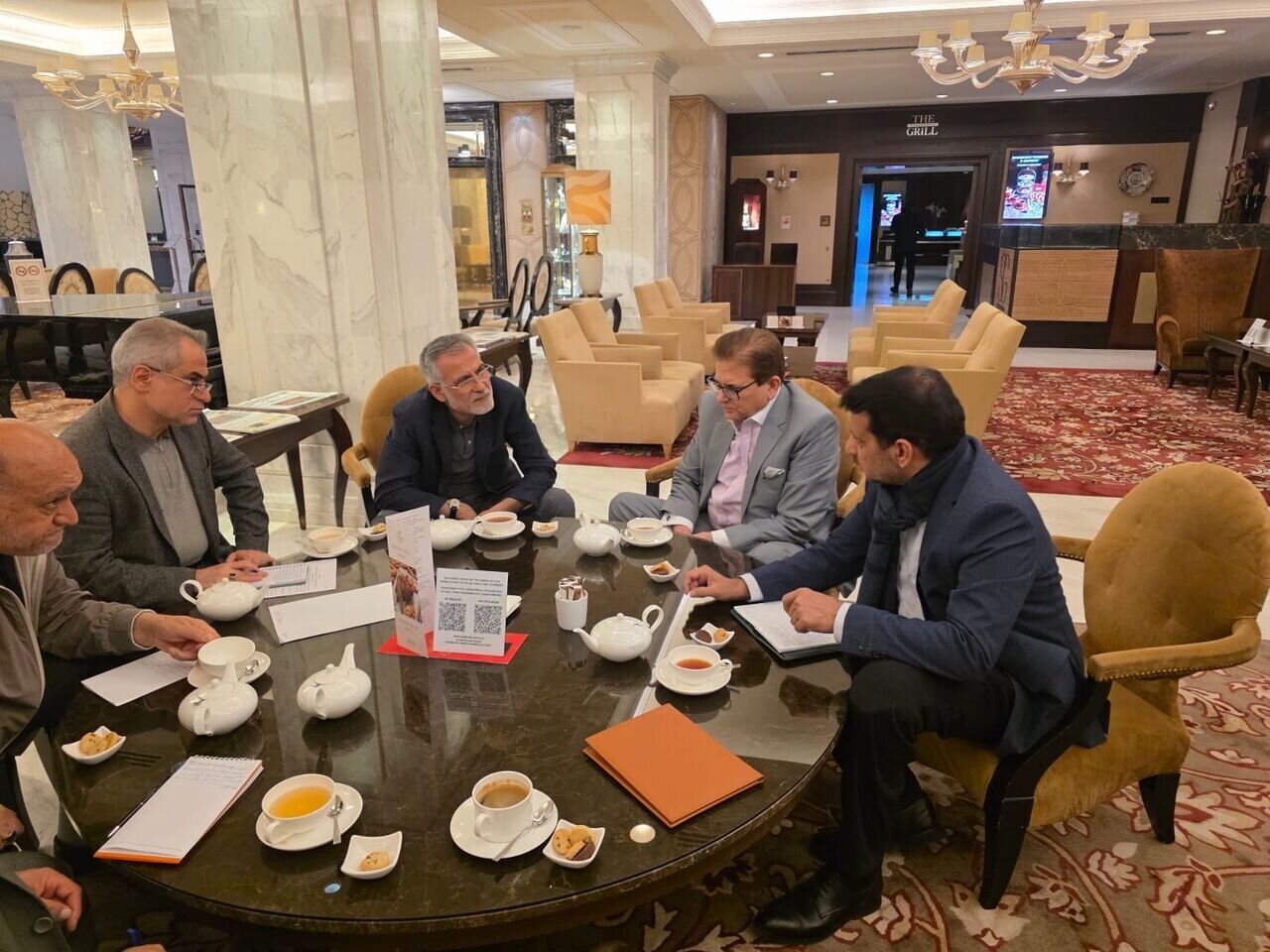Iran and Pakistan discuss latest developments in Afghanistan

TEHRAN – Pakistan's Special Representative for Afghanistan Mohammad Sadiq and his Iranian counterpart Mohammad-Reza Bahrami have discussed the latest developments in Afghanistan.
“Had a great meeting with Muhammad Reza Bahrami, my Iranian counterpart, in Moscow ahead of Moscow Format consultations on Afghanistan starting tomorrow,” Sadiq wrote on his X account on Monday.
“We held in-depth discussions on the latest developments in Afghanistan and exchanged views on shared concerns, particularly the persistent threat of terrorism,” he added.
He noted that both sides emphasized the importance of continued dialog and coordination to address common challenges.
“We also explored avenues for strengthening bilateral cooperation and enhancing regional engagement to support stability and security,” he said.
The 7th meeting of the Moscow Format of Consultations on Afghanistan will be held with the participation of the Russian Foreign Minister Sergei Lavrov on Tuesday.
Promoting national reconciliation in Afghanistan and expanding practical cooperation between regional countries and Kabul in the political, economic, counter-terrorism, and narcotics fields will be on the agenda of the meeting. The event is the first such meeting since Russia's move to recognize the Taliban with participants set to issue a joint statement.
Earlier on July 4, 2025, Russia accepted the credentials of the new Afghan ambassador to Moscow, thus becoming the first country to recognize the Taliban government.
Meanwhile, Iranian Foreign Minister Abbas Araghchi met, in Tehran on Sunday, with the acting head of the Iranian Embassy in Afghanistan, Alireza Bikdeli, to discuss the latest developments in the neighboring country.
During the meeting, the Iranian envoy presented a report on steps taken to follow up on issues of mutual interest, particularly in economic, cultural, and consular areas.
Both sides exchanged views on the latest status of bilateral relations between Iran and Afghanistan, as well as the embassy’s programs in this regard.
This comes as Iran and Pakistan have both returned a considerable number to Afghan immigrants to their country.
On August 15, 2021, Taliban fighters entered Kabul after a lightning military campaign across the provinces, toppling the administration of Ashraf Ghani and prompting a rapid and chaotic American withdrawal from the country.
Their return came nearly twenty years after the U.S. and its allies invaded the country, citing the need to dismantle Al-Qaeda, destroy the Taliban, and capture Osama bin Laden, the mastermind of the September 11 attacks in the US.
Iran hosted millions of Afghan refugees for years, but has been returning them to their country since relative calm has returned to Afghanistan.
In the meantime, The United Nations migration agency has expressed its appreciation towards Iran over the extensive services that the Islamic Republic has been providing to the millions of Afghan refugees staying in the country.
A senior advisor to the International Organization for Migration (IOM)’s director-general made the remarks to Mohammad Bat’haei, deputy Iranian interior minister, in Geneva on Monday. The officials were meeting on the sidelines of the 76th Annual Session of the Executive Committee of the UN High Commissioner for Refugees (UNHCR).
Kim Eling praised the Islamic Republic’s successful efforts aimed at hosting the Afghan nationals, while regretting the decline in contributions from donor countries.
He identified the decline as one of the main challenges that faced the UN in advancing its projects geared towards accommodating the needs of migrants worldwide.
Bat’haei, who also heads Iran’s Social Affairs Organization, noted how the Islamic Republic has been rendering “remarkable” services to the monumental number of Afghan migrants and individuals from other origins, who have been seeking refuge across the country.
Tehran has been providing the support, despite simultaneously suffering under Western states’ “oppressive unilateral sanctions,” he lamented.
“Iran hopes that donor countries, in accordance with their share of responsibility, will allocate appropriate support to the ongoing projects in Iran,” the official added.
